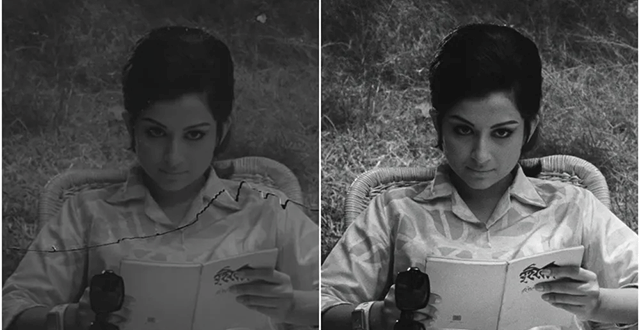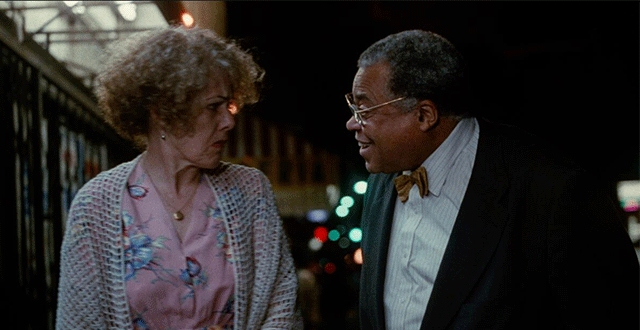News
Wes Anderson Powers Satyajit Ray’s ‘Aranyer Din Ratri’ Rescue for Cannes Classics
Naman Ramachandran
A six-year restoration journey spearheaded by filmmaker Wes Anderson has culminated in Satyajit Ray‘s 1970 masterpiece “Aranyer Din Ratri” (“Days and Nights in the Forest”) securing a slot at Cannes Classics.
The restoration project began in 2019 when Anderson, through his position on the board of Martin Scorsese’s The Film Foundation, initiated discussions about preserving the film. “The Grand Budapest Hotel” director’s passion for Ray’s work drove the collaborative effort between The Film Foundation’s World Cinema Project, Film Heritage Foundation, Janus Films and The Criterion Collection, with funding provided by the Golden Globe Foundation.
“Anything signed by Satyajit Ray must be cherished and preserved; but the nearly-forgotten ‘Days and Nights in the Forest’ is a special/particular gem,” Anderson said. “Made in 1970. Modern and novelistic. Ray worked in terrain perhaps more familiar to Cassavetes. A clash/negotiation between castes and sexes. Urbans and rurals. Selfish men and their hopes and cruelties and spectacular lack of wisdom. Women who see through them. The great Soumitra Chatterjee: lost but searching. The great Sharmila Tagore: mysterious, cerebral, mesmerizing. From the master, another masterpiece.”
The restoration effort faced extraordinary challenges due to the global pandemic. Shivendra Singh Dungarpur, director of Film Heritage Foundation, undertook a high-risk journey from Mumbai to Kolkata during strict lockdown conditions in 2020 to assess the condition of the original camera and sound negatives preserved by producer Purnima Dutta at her home.
“The restoration of ‘Aranyer Din Ratri’ has been an incredible journey from Kolkata to Cannes that has taken almost six years,” Dungarpur told Variety. “I managed to travel to Kolkata in 2020 in the midst of the pandemic to check the condition of the original camera and sound negatives of the film that were at Purnima Dutta’s home. Once the producers gave their consent, we arranged to ship the elements to L’Immagine Ritrovata in Bologna for scanning and restoration. When I look back I am amazed that I was able to do this given the severe restrictions that were in place at the time.”
The technical restoration process utilized the original camera and sound negatives as primary source elements, with work completed at the specialized facility L’Immagine Ritrovata in Bologna, Italy. Dungarpur worked in close collaboration with the lab throughout the entire process, focusing on preserving the film’s authentic visual characteristics.
Throughout the restoration process, Dungarpur maintained close coordination with the Dutta Family and Ray’s son, Sandip Ray, who actively participated in work-in-progress screenings and final reviews to ensure the restored version maintained fidelity to the original artistic vision. All restoration work was formally approved by both the Dutta Family and Sandip Ray.
“I worked closely on the restoration with Sandip Ray and the lab in Bologna on the whole process beginning from shipping the original negatives to the final restoration and I was struck once again by the mastery of Satyajit Ray as the beauty of the film emerged,” said Dungarpur. “We worked hard on maintaining the grain and blacks to match [DoP] Soumendu Roy’s original work as closely as possible.”
The laboratory’s digital restoration team addressed a comprehensive range of issues present in the original materials, including dust, scratches, stains, image instability, green mold and flickering. The sound restoration presented particular challenges, as the original sound negative exhibited varying degrees of quality across and within reels. Reels 9 through 12 presented the most significant audio challenges, which were successfully minimized through careful intervention. For a limited portion of the audio in Reel 2, a magnetic track preserved by the BFI National Archive was used to replace compromised sections.
A crucial element of the restoration was creating new, accurate English subtitles. For this essential task, the team engaged Indrani Mazumdar, a longtime collaborator of Ray and the only person he entrusted with English subtitles during his lifetime. Mazumdar, who is also renowned for translating many of Ray’s Bengali-language literary works, brought her intimate knowledge of Ray’s intentions to the project.
“‘Aranyer Din Ratri’ is, still today, one of my favorite films and the restoration work that has been done to it is absolutely stunning,” said Sandip Ray. “I worked closely with Shivendra Singh Dungarpur through the whole restoration process and was quite amazed by the meticulous approach that was taken to the restoration. I’m tremendously grateful to Martin Scorsese’s ‘The Film Foundation’, Film Heritage Foundation, and The Criterion Collection for joining hands to make this restoration possible. My heartfelt thanks to Wes Anderson, who I know is a great admirer of my father’s work.”
Producer Purnima Dutta, who preserved the original negatives of the film at her home in Kolkata for decades, added: “I am overwhelmed that ‘Aranyer Din Ratri,’ a masterpiece by Satyajit Ray, has been restored. As the producer of the film, it is a great honor and pleasure for me. I would like to thank The Film Foundation for restoring the film and Shivendra Singh Dungarpur of Film Heritage Foundation for his dedication and the time he spent to supervise and coordinate the restoration to ensure that ‘Aranyer Din Ratri’ is given a second life.”
In parallel with the meticulous restoration work, Janus Films secured licensing rights for the film in the U.S. and U.K. through negotiations with Purnima Dutta. This collaborative effort between The Film Foundation (TFF) and longtime partner Fumiko Takagi of Janus Films/Criterion Collection, who had previously explored licensing the title with Dutta in Kolkata in 2013, ensures the restored film’s availability to audiences in its highest possible quality.
The Bengali-language classic offers a nuanced portrayal of post-colonial urban India through the lens of four young men seeking temporary escape in the forests of Jharkhand. The film features an ensemble cast including Sharmila Tagore, Kaberi Bose, Simi Garewal, Soumitra Chatterjee, Shubhendu Chatterjee, Rabi Ghosh, Samit Bhanja, Pahari Sanyal, and Aparna Sen, among others.
Actor Simi Garewal, who played a memorable role in the film, reflected on the significance of the restoration: “The restoration of ‘Aranyer Din Ratri’ is an extraordinary gift – not just to those of us who were part of the film, but to world cinema. I still remember the silence of the forests, the rhythm of the shoot… Working with Satyajit Ray was like stepping into the mind of a quiet genius – every word, every gesture mattered, and he had this rare ability to make you discover depths in yourself you didn’t know existed. I’m so pleased that this masterpiece has been so lovingly restored by Martin Scorsese’s The Film Foundation, Film Heritage Foundation and the Criterion Collection for future generations to experience.”
Lead actor Sharmila Tagore also shared her memories of the production: “I remember I was shooting for ‘Aradhana’ when Manik Da [Satyajit Ray’s nickname] approached me to shoot for this film for a month at a stretch. It was incredibly hot during the shoot and we could only shoot in the mornings and late afternoons. I have wonderful memories of the time spent with my co-actors and Manik Da’s precision, especially in the way he shot the memory game sequence, was incredible. “Aranyer Din Ratri’ is such a contemporary film that I know it will resonate with new audiences across the world even today.”
Restored and Rediscovered Festival Spotlights Organizations at the Forefront of Film Restoration
Monica Castillo
It seems like every month, there’s an exciting new 4K re-release or a newly restored rediscovery that’s reaching audiences for the first time. But the busy calendar of film restorations is more of a recent development in the history of the field that’s just about to celebrate its first centennial.
Margaret Bodde, executive director of The Film Foundation, remembers a story Martin Scorsese told her that inspired his interest in film preservation when he lived in Los Angeles in the 1970s. “He went to a screening at LACMA that Ron Haver put together. I think it was the 20th Century Fox story, so it was all these different film prints from Fox,” she said. “They screened ‘Niagara’ followed by ‘The Seven Year Itch,’ you’re talking about only 20 years after these films were huge hits for the studio. The print for ‘Niagara’ was pretty faded. It wasn’t what the director intended it to look like, but it was screenable. Then, they put up a print of ‘The Seven Year Itch,’ and it was so bad, it was so washed out, so faded, it had gone pink. Everything was kind of almost one color.”
Years later, newly wed couple Amy Heller and Dennis Doros used their distributor and restoration knowledge to start Milestone Films highlighting works that traditional distributors had overlooked. Starting with early sound films about exploration and art documentaries, their collection grew to include Charles Burnett’s “Killer of Sheep” and the revolutionary film “I Am Cuba.” Doros describes the early days of Milestone Films as “We just got Daddy’s barn and started a distribution company.” Heller added, “We got into a one-bedroom apartment, and my mother-in-law wanted to give us china, a 16-piece set for a one-bedroom apartment. Instead, we asked for a fax machine, and we dedicated a whole closet to it.”
Around the same time, documentarian Barbara Moss approached her fellow board members at New York Women in Film and Television to show them a decaying film reel and sound the alarm that the history of women’s contribution to cinema could be lost forever. “Whether it was well-known or independent, it was mostly men whose work was being preserved,” said Terry Lawler, co-chair of the Women’s Film Preservation Fund. “[Moss] had remembered when she was in film school, she asked the teacher if there were any films by women, and he said no, there weren’t any, and that was not true.”
Much has changed over the years in the field of film preservation and restoration. This year’s Restored and Rediscovered festival at the Jacob Burns Film Center will spotlight several organizations celebrating milestones of their own. IndieCollect, which specializes in restoring and preserving the works of independent filmmakers, will commemorate its 15th anniversary, and the New York Women in Film and Television’s Women’s Film Preservation Fund has helped save and restore a number of movies by women filmmakers for 30 years.
The Film Foundation, which helps restore movies from major Hollywood studios, independent filmmakers, and those worldwide, and Milestone Films, which specializes in saving and restoring canon-challenging works, share 1990 as their foundational year. That year also marked the beginning of the Association of Moving Image Archivists, which promotes “cooperation between the archives, the labs, the distributors, and the studios to work together to restore films,” according to Doros, signaling a new age of collaboration for the profession.
While archives like MoMA, George Eastman Museum, UCLA Film and Television Archive, Academy Film Archive, Library of Congress, and others have preserved and restored films for decades, the renewed interest in older films dovetailed with the growth of the home movie market. “When the DVD home video home entertainment market opened up, the demand for these films to have the best image quality, the audience demanded better and better image quality, and that really helped the field of preservation almost better than anything else because then the studios had an incentive,” Bodde said.
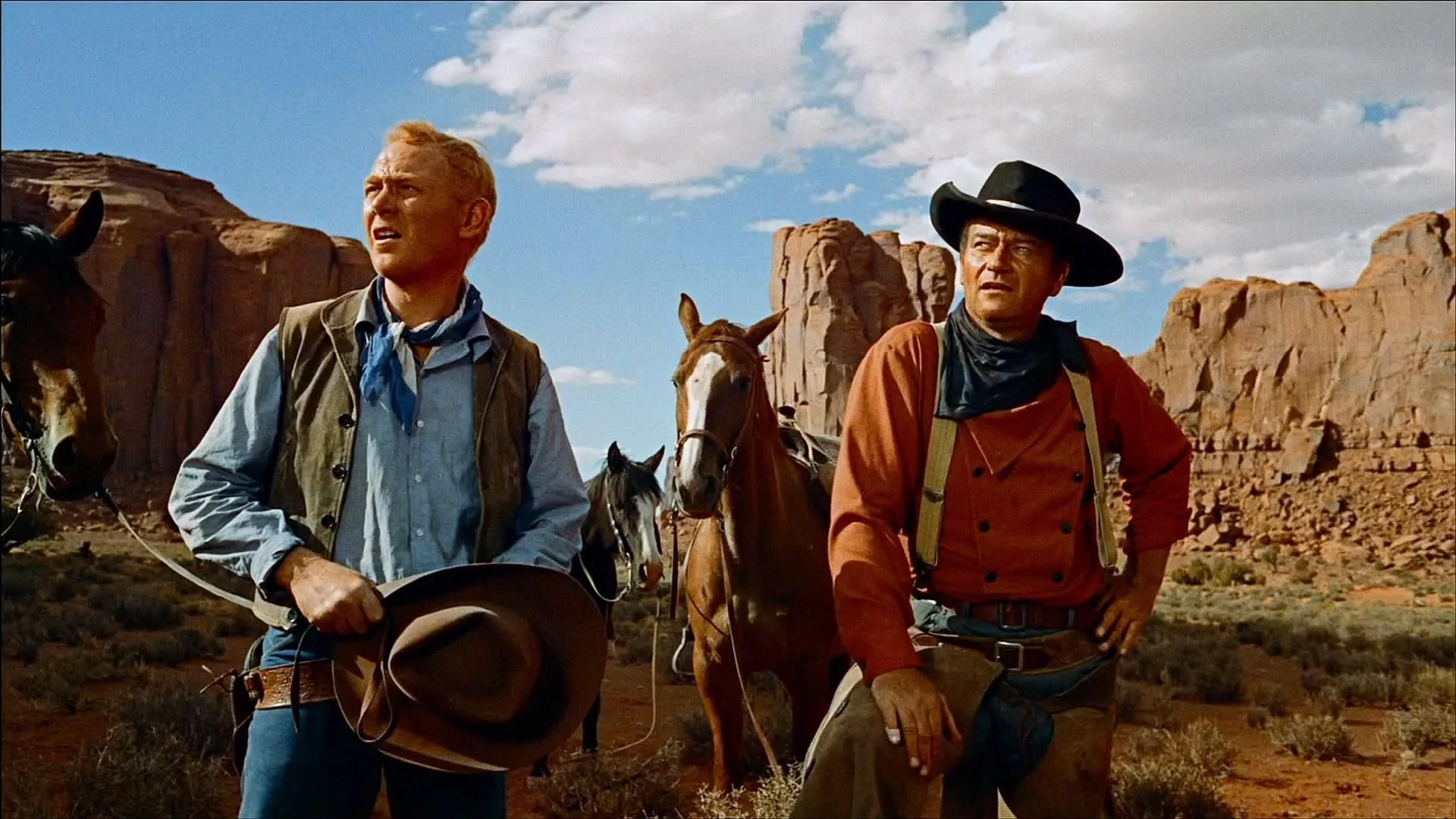
Over the years, film restoration organizations worked together to bring these movies out of archives, basements, attics, and closets, but they still face financial challenges to fund the painstaking work. IndieCollect’s first batch of restorations was funded by Kickstarter. The Film Foundation and the Women’s Film Preservation Fund found a partner in America Movie Classic’s Preservation Festival during their early years before the cable channel became the home for zombie series and prestige TV dramas in the 2010s. Today, many film restoration organizations work with foundations and archives to pool resources and funding to complete a restoration. “We have been able to raise more money lately than we were at the beginning, so we are able to give more films more money,” said Lawler. “It is still not what is needed and still not what we’d like to do. The problem is that the need keeps growing faster than we can grow.”
While thousands of titles await restoration, all organizations are limited to how many projects they can take on in a given year due to the expensive and time-consuming nature of a well-done restoration. “Since we support all eras, all genres, and disciplines, we’re trying to sort out if there are any films that are currently in real peril like mold or vinegar syndrome (a form of film decay),” said Kirsten Larvick, co-chair of the Women’s Film Preservation Fund. “Does something need urgent attention? What is completely out of circulation?”
“IndieCollect only restores about five to ten movies a year,” said Cameron Haffner, restoration & filmmaker services manager at IndieCollect. “Maybe like 10% of the films we restore are acquisitions from filmmakers who are like, ‘My film is going to disappear just because I have to dispose of it.’ IndieCollect has to step in, acquire it, preserve it, clean it, and digitize it before significant vinegar syndrome sets in and it starts decaying beyond repair or beyond the standard for digitization because then it just gets remarkably expensive.”
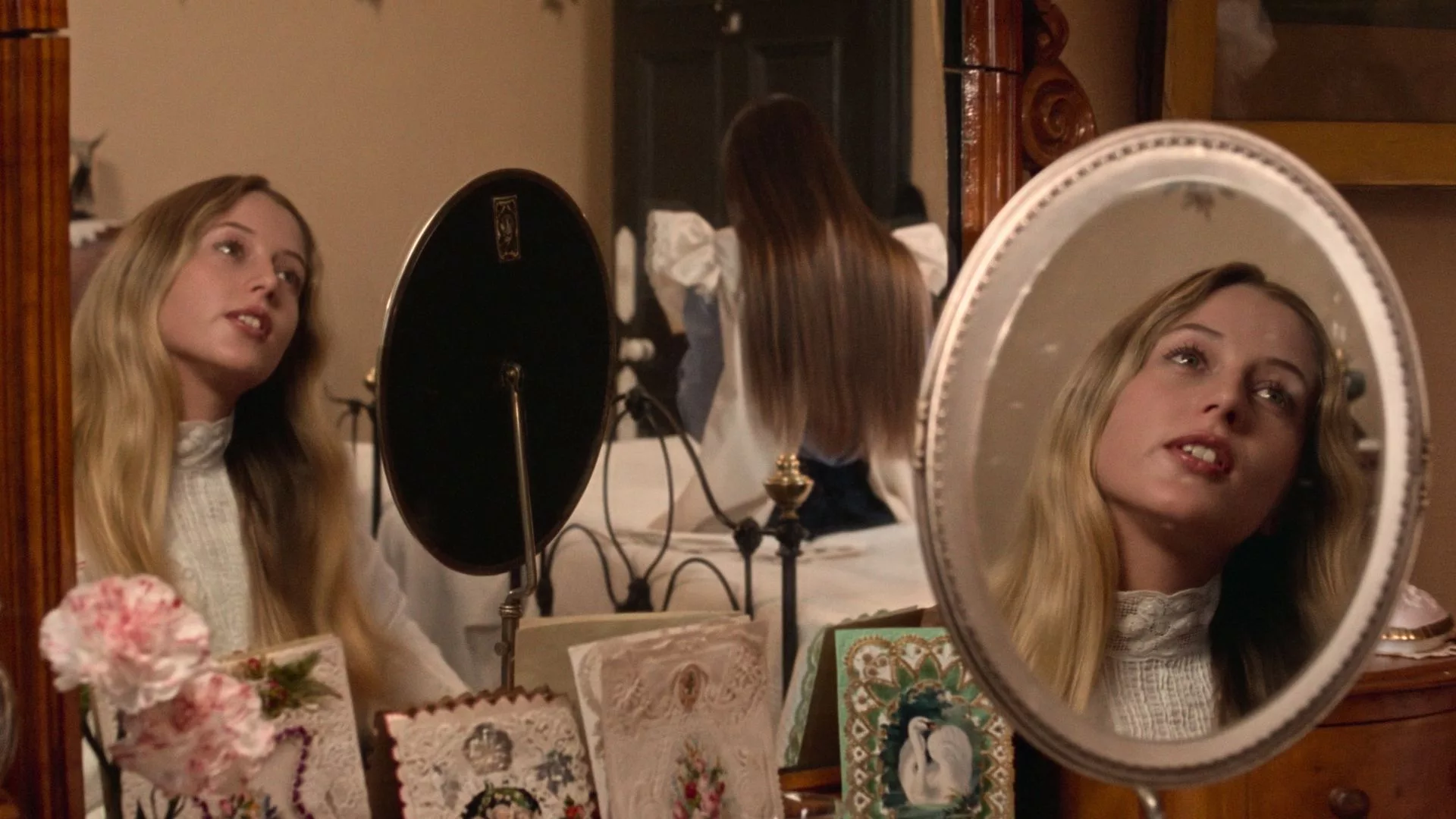
The Film Foundation, which also gives grants for preservation projects, works with partnering archives to find out which titles they’re looking to restore to discuss with the organization’s board of directors, who may suggest additional titles for restoration funding. “A good example of that is Satyajit Ray’s ‘Days and Nights in the Forest,’ that’s one of Wes Anderson’s favorites,” said Bodde. “He loves Ray, and this is a film that he’s particularly fond of. He said it’s hard to see, let’s try to restore that. That process takes time to identify the rights holders and work out a plan for accessing the original negative and get funding. All those things have finally come together thanks to our partners at the Film Heritage Foundation and the Criterion Collection. Then the Golden Globes Foundation provided the funding so that the film is going to premiere at Cannes and Wes will be there.”
Working with Burnett on restoring “Killer of Sheep” and “My Brother’s Wedding” was a moment of clarity for Heller and Doros. “It made us realize that if we were going to take risks on films, we might as well take risks on films that we believed should be available, both for aesthetic and cinematic reasons, and for political and historical reasons,” she said. That includes their efforts to bring “The Annihilation of Fish” back to audiences. After a sour review sank its distribution deal, the film remained in limbo for years. Burnett turned to his friends at Milestone to get it released in 2002, and the group spent 19 years getting the rights to the film back for its long-overdue release.
This year’s edition of Restored and Rediscovered, running from May 15-22 at the Jacob Burns Film Center, features a variety of films and a panel discussion about the state of film preservation and restoration. The series will screen three restorations from The Film Foundation including John Ford’s “The Searchers” with an introduction by TFF board member and “The Holdovers” director Alexander Payne, one of the recent World Cinema Project restorations of Sergei Parajanov’s “Shadows of Our Forgotten Ancestors,” and a collaboration with Milestone Films that brought back Charles Burnett’s “The Annihilation of Fish” for its long awaited theatrical release. The Women’s Film Preservation Fund will kick off their 30th anniversary celebration with a screening of “The Affair at Raynor’s,” a restored serial episode, and Francis Marion’s “Just Around the Corner,” one of the early feature films directed by a woman, both with live musical accompaniment. IndieCollect’s restoration of the Sundance hit “Girl’s Town” will close out the series’ fourteen-film program, including restorations from France, the Philippines, and Australia.
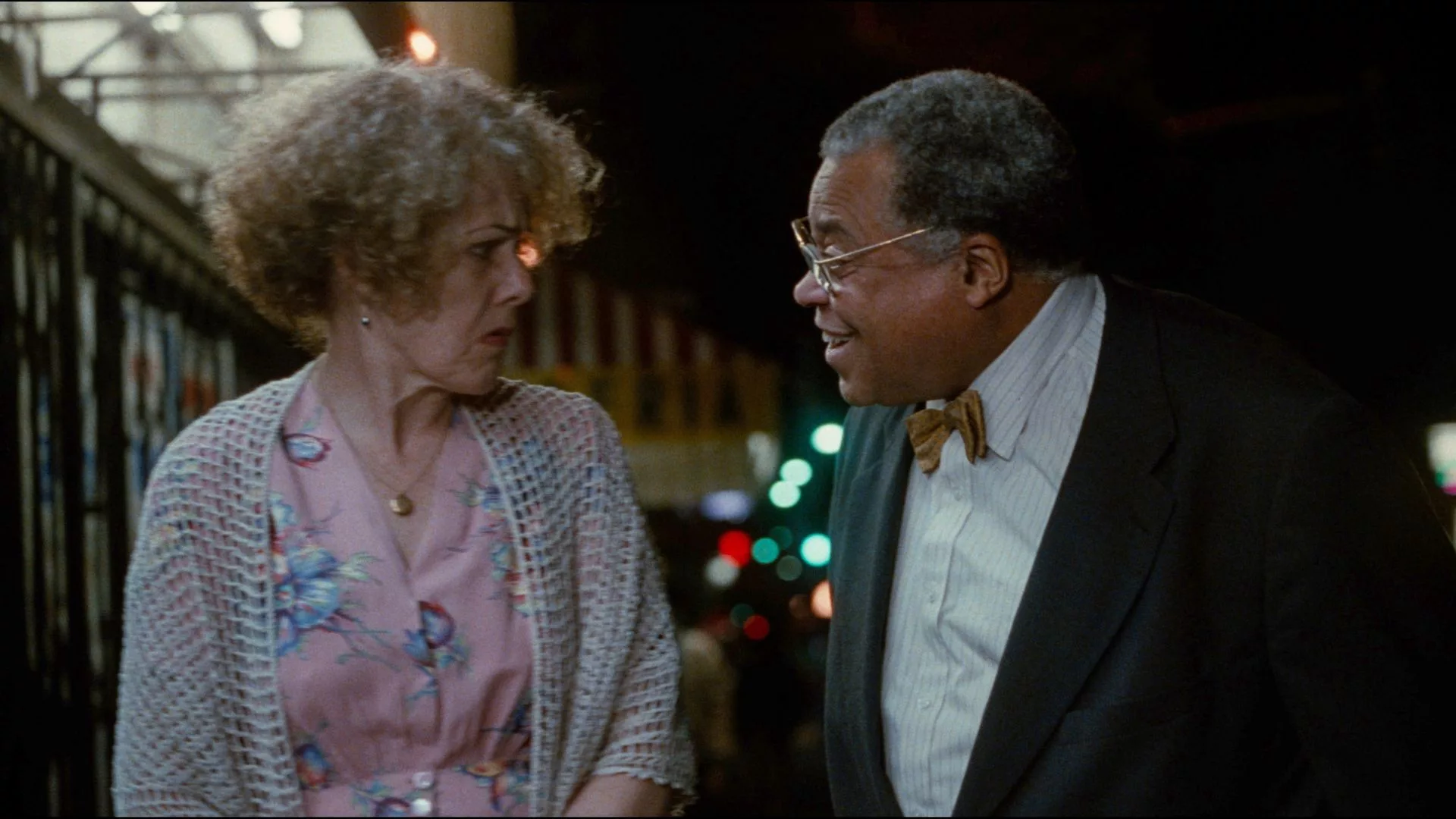
After the series concludes, there will be many more restorations to watch. IndieCollect’s latest releases, “Northern Lights” and Lily Tomlin’s one-woman show “The Search for Intelligent Life in the Universe,” will screen in theaters in June and July, respectively. The Women’s Film Preservation Fund is currently accepting preservation applications for a new grant cycle through June 30 and plan on hosting many more screenings and events commemorating their 30th anniversary, including the premieres of two of their latest restorations, “The Heart of the Matter” and “Two Lies,” later this year.
Among The Film Foundation’s busy slate of new restorations, Bodde is excited for the new restorations premiering at the Cannes Film Festival this week, including King Vidor’s “Duel in the Sun,” Satyajit Ray’s “Days and Nights in the Forest,” and Mohamed Lakhdar Hamina’s “Chronicle of the Year of Embers.” While “The Annihilation of Fish” is making its way through theaters, Heller and Doros suggested audiences check out Milestone’s latest releases, Bridgett Davis’ “Naked Acts” and David Schickele’s “Bushman,” a prescient docu-drama hybrid about a college student who’s wrongfully arrested and deported. The pair also recently made headlines for giving their storied company away to film historian Maya Cade, who was instrumental in restoring “Naked Acts.”
“I know a lot of young people, and they don’t look at decades, they don’t say, oh, this film is black and white. This film is old. This film was made in another country,” said Bodde. “They’re very open to cinema. If it speaks to them, moves them, or interests them, then they’re open to it. I’m very hopeful that young people will love and care about cinema. There are also a lot of young people who are interested in the field of film preservation, and that makes me very hopeful.”
Cannes Classics 2025
The centenary of Charlie Chaplin’s The Gold Rush pre-opening the Festival on May 13 in Debussy Theater,
The world premiere of Diane Kurys’ film which narrates the Montand-Signoret couple,
The 25th anniversary of Amores perros by Alejandro G. Iñárritu attending,
A tribute to Edward Yang with the restored print of Yi Yi,
The re-release of John Woo’s Hard Boiled,
The 90th anniversary of Marcel Pagnol’s Merlusse, President of the Jury in 1955,
Documentaries to remind us of David Lynch, Carlos Diegues and Pierre-William Glenn,
Two actors filming themselves, Shia LaBeouf and Raphaël Quenard,
Kevin Smith and Dogma back on the Croisette, as well as Hong Kong director T’ang Shushuen for The Arch,
A tribute to István Szabó,
The 50th anniversary of One Flew Over the Cuckoo’s Nest,
Cycling legend Eddy Merckx for the legendary Course en tête by Joël Santoni,
A screening as a tribute to Mohamed Lakhdar-Hamina,
Rare cinema from Colombia and Iraq,
Sri Lanka’s first female director,
The 120th anniversary of Naruse’s birth,
Abel Gance’s Magirama,
Jayne Mansfield by her daughter actress Mariska Hargitay, Satyajit Ray by Wes Anderson thanks to Martin Scorsese’s The Film Foundation,
German director Konrad Wolf to be showcased,
An Argentinian film, Más allá del olvido, which might have inspired Alfred Hichcock’s Vertigo,
Barry Lyndon to close,
and…
Quentin Tarantino for two films and a meeting about George Sherman.
THE GOLD RUSH: 100TH YEAR ANNIVERSARY!
After La Maman et la putain, L’Amour fou and Napoléon par Abel Gance, the Festival de Cannes will premiere as a worldwide pre-opening film on Tuesday, May 13, 2025, at 3PM in Debussy Theater, Charlie Chaplin’s The Gold Rush.
The Gold Rush by Charlie Chaplin (1925, 1h28, United States)
(La Ruée vers l’or)
A presentation by Roy Export SAS with the support of mk2.
4K restoration carried out by Fondazione Cineteca di Bologna at L’Immagine Ritrovata laboratory, using elements created by Photoplay and from archival material generously provided by the BFI National Archive, Blackhawk Films, the Lobster Films Collection, Das Bundesarchiv, the Filmoteca de Catalunya, the George Eastman Museum, and the Museum of Modern Art (MoMA).
Worldwide re-release organised by mk2 Films on 26 June 2025.
Screening in the presence of Arnold Lozano, Director of Roy Export SAS.
AMORES PERROS 25 YEARS LATER
As a groundbreaking moment for early 2000s Mexican cinema and winner of the Grand Prize at the Semaine de la Critique at the 2000 Festival de Cannes, Amores perros retains its full and undiminished power. Let us meet with Alejandro G. Iñárritu to celebrate the anniversary of his first film.
Amores perros by Alejandro G. Iñárritu (2000, 2h34, Mexico)
(Amours chiennes/Love’s a Bitch)
An Alebrije Cine y Video presentation.
This picture and sound restoration of Amores perros was undertaken in 2020 by the Criterion Collection, Estudio Mexico Films, and Altavista Films. The picture was restored from the 35 mm original camera negative, which was scanned in 16-bit 4K resolution. The color was supervised and approved by director Alejandro G. Iñárritu, as well as director of photography Rodrigo Prieto, at Harbor Picture Company in Santa Monica, California. Picture restoration was carried out at the Criterion Collection in New York.
The new 5.1 surround soundtrack mix was created at Cinematic Media and Churubusco from the digitally archived soundtrack stems and print master using Avid’s Pro Tools and iZotope RX. New sound effects and dedicated Foley work were added in detail throughout the film. The new soundtrack was supervised and approved by Iñárritu as well as by supervising sound editor/designer Martín Hernández, and mixed by Jon Taylor at NBCUniversal StudioPost.
Screening in the presence of Alejandro G. Iñárritu.
DIANE KURYS’ NEW FILM WORLD PREMIERE
As the festivities will kick off on May 13 with Amélie Bonnin’s Partir un jour, it is worth remembering that Diane Kurys was the first female director to open the Festival de Cannes. It was in 1987, with Un Homme amoureux. This year, Diane Kurys returns to the Croisette to present, in Agnès Varda Theater, her vision of the passionate and fascinating story of the mythical couple: Simone Signoret and Yves Montand.
Moi qui t’aimais by Diane Kurys (1h59, France)
(The One I Loved)
A PAN Distribution presentation.
Screening in the presence of Diane Kurys, Marina Foïs, Roschdy Zem and Thierry de Peretti.
T’ANG SHUSHUEN: AN INDEPENDENT FILMMAKER
One of the few independent female filmmakers in Hong Kong during the 1960s and 70s, she directed one of the first arthouse films from the Pearl of the Orient. A bold and successful fusion of traditional Chinese aesthetics and modern European cinematic style, The Arch premiered worldwide at Cannes in 1969.
The Arch by T’ang Shushuen (1968, 1h35, Hong Kong)
(L’Arche/The Arch)
The film was restored in 4K by M+, Hong Kong, in 2025, from a 35mm release print preserved at the University of California, Berkeley Art Museum and Pacific Film Archive and a 35mm release print preserved and scanned at the BFI National Archive. Conformation, restoration, and colour grading were undertaken at Silver Salt Restoration.
The Arch is one of the films under ‘M+ Restored’, an initiative supported by Chanel.
Screening in the presence of T’ang Shushuen.
KEVIN SMITH ON TOUR, NEXT STOP: CANNES
Screened Out of Competition at the 1999 Festival de Cannes, the screenwriter and director is back to prove that it is time to celebrate with dignity and humor the re-release of his film and his “DOGMA: The Resurrection Tour, A 25th Anniversary Celebration with Kevin Smith”, which will pass through Cannes in May.
DOGMA: Resurrected – A 25th Anniversary Celebration! by Kevin Smith (1999, 2h10, United States)
A View Askew Presentation. Remastered in 4K from new full-aperture 16-bit scans of the original 1999 35mm interpositive. 4K scanning by Prime Focus. Audio remastered by Nick Bergh at Endpoint Audio Labs in 5.1 surround from the best existing elements. Digital Image Restoration, Color grading supervised by Robert Yeoman, along with, Conform, and DCP creation by Darin Wooldridge. Restoration supervised by Alessandra Williams and Dan Kliman.
Screening in the presence of the filmmakers, Director Kevin Smith, and Director of Photography, Robert Yeoman.
ISTVÁN SZABÓ IS BACK!
Five times in Competition, Prize of the Jury in 1985, member of the Jury in 1986, the Hungarian filmmaker, a friend of the Festival de Cannes, will be honored at an evening screening of a newly restored film produced by Robert Lantos.
Winner of the FIPRESCI prize in 1981 for Mephisto, István Szabó will receive a special tribute as part of the centenary celebration of the International Federation of Film Critics.
Sunshine d’István Szabó (1999, 3h01, Canada/Germany/Hungary/Austria)
A National Film Institute Hungary and Serendipity Point Films presentation. 4K digital restoration by National Film Institute Hungary. Grading supervised by Mr. Lajos Koltai, the film’s cinematographer.
Screening in the presence of István Szabó, producer Robert Lantos and György Ráduly, Director of the National Film Institute – Film Preservation and Technology Division Hungary.
ACTORS AT WORK: SHIA LABEOUF AND RAPHAËL QUENARD
Slauson Rec by Leo Lewis O’Neil (2h25, United States)
A Hole In My Ceiling and Knight Zien production.
In 2018, Shia LaBeouf launched a free acting school at the Slauson Rec Center in South Central, Los Angeles. What began as an open, egalitarian workshop quickly turned into intense daily rehearsals led by Shia, pushing participants to their limits. Filmmaker Leo Lewis O’Neil, who was present from the very first workshop, documents the participants’ complex journey of professorship and the lasting influence and impact on this diverse group over three years.
Screening in the presence of Leo Lewis O’Neil and Shia LaBeouf.
I Love Peru by Raphaël Quenard and Hugo David (2025, 1h08, France)
A Lipsum & Chi-Fou-Mi Productions production, in coproduction with Wašté Films.
In his headlong rush to success, an oddball comedian abandons his most loyal allies. Alone with himself, he is struck by a disturbing vision. He heads to Peru for a spiritual adventure.
Screening in the presence of Raphaël Quenard and Hugo David.
A TRIBUTE TO EDWARD YANG
Winner of the Best Director Prize at the 2000 Festival de Cannes, Yi Yi returns to the Palais des festivals screens to honor the memory of director Edward Yang, 2001 Jury member and 2005 President of the Cinéfondation and short films. The film will open Cannes Classics.
Yi Yi by Edward Yang (2000, 2h53, Japan/Taiwan)
(Yi Yi – a One and a Two)
A Pony Canyon Inc. presentation. 4K digital restoration carried out by Pony Canyon Inc., with analog and digital processes provided by Imagica Entertainment Media Services, Inc.
Image digitization from the original 35mm acetate-based negative film, and sound digitization from Hi8 source stored in Taiwan. Sound restoration by Tu Duu-Chih. Restoration and color correction supervised by Kaili Peng. Color correction by Noboru Yamaguchi, colorist at Imagica Entertainment Media Services, Inc.
Screening in the presence of Kaili Peng, partner of Edward Yang, credited as composer, set designer, costume designer and actress of the film.
JOHN WOO : HONG KING !
As a true holy grail for cinephiles around the world, John Woo’s work will soon finally be available in a restored version. Launched as a worldwide premiere, the legendary master of 1990s Hong Kong action cinema returns to the big screen at Cannes.
Hard Boiled by John Woo (1992, 2h08, Hong Kong)
(À toute épreuve/Hard Boiled)
A Shout! Studios presentation. Restoration from the original 35mm camera negative. 4K digitization by Interface Video Production Ltd. Audio restoration of the original Cantonese theatrical mono track by Brandon Bentley. Restoration by Duplitech. Color correction by Dave Lewis, Christopher Moore and Blake David-Blasingame. Conformation by Dominic Marino and Stephen Hardy. DCP creation by Brian Bolt, Matt Hepworth and Michael Rainey. Restoration supervised by Henry Weintraub of Shout! Studios.
Screening in the presence of Jordan Fields, SVP of Acquisitions & Originals, Shout! Studios.
A restored and remastered 4K version of John Woo’s HARD BOILED, starring Chow Yun-Fat and Tony Leung Chiu-Wai, is set to have its premiere at Cannes Classics.
Following its Cannes Classics premiere, the newly restored HARD BOILED 4K will be released in North America through Shout! Studios’ new entertainment label, Hong Kong Cinema Classics™, and in France through Metropolitan Film.
CANNES CÉLÈBRE MARCEL PAGNOL
On the 50th anniversary of Marcel Pagnol’s passing and the 130th anniversary of his birth, in the continuation of an operation carried out in collaboration with the Mairie de Cannes, Cannes Classics will celebrate the 70th anniversary of his presidency of the Jury by screening a newly restored version of the film that inspied Alexander Payne’s Winter Break.
Merlusse by Marcel Pagnol (1935, 1h12, France)
A presentation by CMF-MPC and the Cinémathèque française.
With the support of CNC, the Région Sud, and the Fonds de Dotation Marcel Pagnol. 4K restoration carried out by Transperfect Media laboratory. Colour grading supervised by Guillaume Schiffman.
Theatrical distribution by Carlotta Films for mk2 Films. In theatres in France on July 30, 2025.
Screening in the presence of Nicolas Pagnol.
REMEMBERING DAVID LYNCH, CARLOS DIEGUES AND PIERRE-WILLIAM GLENN
These emblematic figures of the Festival de Cannes will be honored in brand-new documentaries.
David Lynch, une énigme à Hollywood by Stéphane Ghez (1h02, France)
(Welcome to Lynchland)
An Arte France, Cinétévé coproduction.
As a creator of absolute freedom, David Lynch has built his work as a riddle to be deciphered between dream and reality. As a cult director from his very first films – Eraserhead, The Elephant Man, Blue Velvet – Lynch forever disrupted the world of television with his series Twin Peaks, before tackling the lies of Hollywood in Mulholland Drive. Recounting the life of the most influential filmmaker of his generation, this documentary explores the hidden meaning behind a relentlessly consistent filmography and delves beneath the dark and writhing surface of the American Dream.
Screening in the presence of Riley Lynch, David Lynch’s son, and Stéphane Ghez.
Para Vigo me voy by Lírio Ferreira and Karen Harley (1h39, Brazil)
(À Vigo je vais/To Vigo I Go)
A Coqueirão Pictures, Globo Filmes, GloboNews, Sinédoque, Dualto Produções and Raccord Produções production.
A documentary feature on Carlos Diegues, one of the greatest Brazilian filmmakers, who recently passed away. In his final interviews, he discusses cinema, politics, Brazil, and his own life. These interviews are interspersed with excerpts from his films and their soundtracks, composed by artists such as Chico Buarque, Gilberto Gil, and Caetano Veloso.
Screening in the presence of Karen Harley and Lírio Ferreira, producers Diogo Dahl and Maria Fernanda Miguel, editor Lucílio Jota, sound editor Waldir Xavier, the actress from one of Carlos Diegues’ films, Ana Maria Magalhães, singer Ney Matogrosso, as well as Renata Magalhaes, Carlos Diegues’ spouse, and Isabel, his daughter.
Dis pas de bêtises ! by Vincent Glenn (1h20, France)
(Watch what you say)
In the beginning, there was a heart operation gone wrong. From this was born this film, written as a tragi-comedy taking a father and son on a journey to an unknown destination. It’s an escapade through memory, film noir and the life of a man who has played with shadows all his life. A tribute to great cinematographer Pierre-William Glenn.
A Compagnie des 9 muZ & No Yelling Productions Production.
Screening in the presence of Vincent Glenn.
BO WIDERBERG
I Huvudet På by Jon Asp and Mattias Nohrborg (1h45, Sweden)
(Bo Being Bo Widerberg)
A B-reel Films production, produced by Mattias Nohrborg. French distribution: Malavida. French theatrical release: June 11th, 2025.
A feature-length documentary about the Swedish acclaimed and eccentric director Bo Widerberg who in the shadow of Ingmar Bergman became Sweden’s most influential filmmaker. It describes Widerberg’s celebration during the progressive early 1960s, from being an aspiring author and a harsh critic to his heydays as hallmarked film auteur and on to adventures in Cannes and New York, directing films like The Baby Carriage, Raven’s End, Elvira Madigan, Joe Hill and Man on the Roof, among others. The film also shows to what cost Bo Widerberg’s career, or rather his ardent search for life, came at – on his colleagues, on his family and on himself.
Screening in the presence of Jon Asp and Mattias Nohrborg and the actors from Bo Widerberg’s films, Thommy Berggren and Pia Degermark, the Elvira Madigan couple, in Competition at Cannes in 1967, for which Pia Degermark received the Best Actress Award.
JAYNE MANSFIELD
My Mom Jayne by Mariska Hargitay (1h45, United States)
A Mighty Entertainment and HBO production. Mariska Hargitay was three years old when her mother, Jayne Mansfield, tragically died in a car accident at the age of 34. The film follows Mariska as she seeks to know, understand, and embrace her mother for the first time. Through intimate interviews and a collection of never-before-seen photos and home movies, she grapples with her mother’s public and private legacy and discovers the layers and depth of who Jayne was, not only to her audience but to those who were closest to her.
Screening in the presence of Mariska Hargitay.
COPIES RESTAURÉES
Aranyer din ratri by Satyajit Ray (1970, 1h55, India)
(Des jours et des nuits dans la forêt / Days and Nights in the Forest)
Presented and restored by The Film Foundation’s World Cinema Project at L’Immagine Ritrovata in collaboration with Film Heritage Foundation, Janus Films, and the Criterion Collection. Funding provided by the Golden Globe Foundation. Special thanks to Wes Anderson.
4K restoration completed using the original camera and sound negative preserved by Purnima Dutta, and magnetic track preserved at the BFI National Archive. Special thanks to Sandip Ray.
Screening in the presence of Wes Anderson, filmmaker and board member of The Film Foundation, lead actress Sharmila Tagore, producer Purnima Dutta, Margaret Bodde, Executive Director of The Film Foundation, Shivendra Singh Dungarpur, Director, Film Heritage Foundation.
La Course en tête by Joël Santoni (1974, 1h50, France/Belgium)
Presented by Panama Productions. 4K restoration by Neyrac Films, Paris, from the original negative.
Screening in the presence of Guillaume Roitfeld (Les Productions Roitfeld/Films Princesse) and Lhoussaïne Zammat (Panama Productions).
Floating Clouds by Mikio Naruse (1955, 2h04, Japan)
(Nuages flottants)
A presentation of TOHO Global Inc. Digital restoration by TOHO Co.,Ltd. For the 4K restoration, the 35mm master positive print was supplied by TOHO and produced by TOHO Archive Co, Ltd. Images and sound respectively digitized by ARRISCAN and SONDOR RESONANCES. Restoration was carried out to celebrate the director’s 120th anniversary since his birth. French distributor: Carlotta Films
Screening in the presence of director Koji Fukada and Shion Komatsu (TOHO Global).
Gehenu Lamai by Sumitra Peries (1978, 1h50, Sri Lanka)
(The Girls)
Presented and restored by Film Heritage Foundation at L’Immagine Ritrovata laboratory in association with the Lester James Peries and Sumitra Peries Foundation. Funding provided by a grant under the aegis of FISCH: France- India – Sri Lanka Cine Heritage – Saving Film Across Borders. Gehenu Lamai was restored in 4K using the best surviving elements: the 35 mm combined dupe negative and two 35 mm release prints preserved at the National Film Corporation of Sri Lanka. The condition of the three elements had deteriorated with tears, broken sprockets, heavy warping, emulsion damage and shrinkage that also impacted the quality of the sound, besides which the combined dupe negative had embedded subtitles. The film was reconstructed and restored using the best portions from each element.
Screening in the presence of lead actress Wasanthi Chaturani, lead actor Ajith Jinadasa, Shivendra Singh Dungarpur, Director, Film Heritage Foundation and Gayathri Mustachi, Chairperson of the Lester James Peries and Sumitra Peries Foundation.
La Paga by Ciro Durán (1962, 1h02, Columbia / Venezuela)
A presentation and restoration by Joyce Ventura and Maleza Cine, coordinated by Vladimir Durán, produced by the Fundación Patrimonio Fílmico Colombiano in collaboration with the Cinemateca de Bogotá and the Fundación Cinemateca Nacional de Venezuela, with the support of the Fondo para el Desarrollo Cinematográfico de Colombia.
Restored in 4K from the original 35mm negatives held by the Fundación Cinemateca Nacional de Venezuela. Dedicated to the memory of Esther Durán Gil.
Screening in the presence of Joyce Ventura, Ciro Durán’s long-time producer, as well as Alexis and Vladimir Durán, filmmakers and sons of the director, and the Fundación Patrimonio Fílmico Colombiano.
Magirama (Four short films in polyvision: Auprès de ma blonde, Fête foraine, Château des nuages, J’accuse) by Abel Gance and Nelly Kaplan (1956, 1h20, France)
A presentation by the CNC, Gaumont and FPA Classics. The digitization and reconstruction of Abel Gance and Nelly Kaplan’s program were carried out by the CNC laboratory, based on original elements deposited with the CNC. The restoration and calibration of J’accuse were carried out by the Transperfect laboratory. The soundtracks were restored by L.E. Diapason and Cinévolution.
Screening in the presence of Laurent Cormier, Head of Heritage Cinema, Centre national du cinéma et de l’image animée (CNC).
Más allá del olvido by Hugo del Carril (1955, 1h34, Argentina)
(Au-delà de l’oubli/Beyond Oblivion)
An Argentina Sono Film presentation. Restored in 4K by Cubic Restoration, in collaboration with the Society for Audiovisual Heritage and with the support of the cultural patronage program of the Ministry of Culture of Buenos Aires, coordinated by Fernando Madedo and supervised by Luis Alberto Scalella. Restoration carried out on the film’s 70th anniversary from the original 35mm negatives and first-generation 35mm internegative preserved in the archive of Argentina Sono Film, owner of the film.
Screening in the presence of Luis Alberto Scalella, president of Argentina Sono Film.
Saïd Effendi by Kameran Hosni (1955, 1h31, Iraq)
(Saeed Effendi)
Presented by the Al-Hasan Ibn Al-Haytham Committee for Iraqi Visual Memory and the Iraqi Cinematheque Project.
Restored in 4K by the Institut National de l’Audiovisuel (INA) from the original 35mm negative image and 35mm optical sound print. Restoration completed in 2025 as part of the Iraqi Cinematheque Project, supported by the French Ministry for Europe and Foreign Affairs and implemented by Expertise France.
Restoration coordinated by: Audrey Birrien (INA), Ayman Nahle and Léa Cesena (Expertise France), supervised by Wareth Kwaish (Expertise France). The restored film is preserved at Al-Hasan Ibn Al-Haytham Committee for Iraqi Visual Memory. Saïd Effendi is based on the short story “Fight” by Iraqi writer Edmond Sabri.
Screening in the presence of Dr. Hassan Al-Sudani, Chairman of Al-Hasan Ibn Al-Haytham Committee for Iraqi Visual Memory, and Wareth Kwaish, Project Manager of the Iraqi Cinematheque Project for Expertise France.
Sterne by Konrad Wolf (1959, 1h33, East Germany/Bulgaria)
(Stars)
Presented by DEFA Foundation and Coproduction Office. The 4K restoration was executed by DEFA Foundation in collaboration with L’Immagine Ritrovata in Bologna. The original 35mm camera negative served as the primary source for the image, while an early, well-preserved 35mm sound negative was utilized for the soundtrack. A distribution print from the film’s initial release provided the reference for color grading. The newly restored 4K version is set to premiere at Cannes 2025, commemorating the centenary of Konrad Wolf’s birth.
Screening in the presence of Philippe Bober (Coproduction Office) and Stefanie Eckert (DEFA-Stiftung).
Waqai sinin al-djamr by Mohamed Lakhdar Hamina (1975, 2h51, Algeria)
(Chronique des années de braise / Chronicle of the Years of Embers)
A presentation by the Lakhdar Hamina family, distribution in French theaters: Les Acacias. A restoration by The Film Foundation’s World Cinema Project and Cineteca di Bologna at L’Image Retrouvée (Paris) and L’Immagine Ritrovata (Bologna) laboratories. The restoration was funded by the Hobson/Lucas Family Foundation and is part of the African Film Heritage Project, an initiative created by The Film Foundation’s World Cinema Project, the Pan African Federation of Filmmakers (FEPACI) and UNESCO – in collaboration with Cineteca di Bologna – to help locate, restore, and disseminate African cinema.
Restoration work was performed in 4K from the original camera and sound negatives, outtakes from the 35mm negative and both a first generation 35mm interpositive and a 35mm vintage print used as reference, the last two provided by Mohamed Lakhdar Hamina. Color grading was supervised by the filmmaker. Three different cuts exist of this film: it was Mohamed Lakhdar Hamina’s wish that the restoration reconstruct the version that was awarded the Palme d’or at the Cannes Film Festival in 1975.
Screening in attendance of Tarek Lakhdar Hamina, Malik Lakhdar Hamina and Merwan Lakhdar Hamina, actors of the film and sons of director Mohamed Lakhdar Hamina.
50 YEARS OF ONE FLEW OVER THE CUCKOO’S NEST
A filmmaker dear to the heart of the Cannes Film Festival, Miloš Forman sees one of his greatest works restored. Produced by Saul Zaentz and Michael Douglas, it won five Oscars and gave Jack Nicholson one of his greatest roles.
One Flew Over the Cuckoo’s Nest by Miloš Forman (1975, 2h13, United States)
A presentation by the Academy Film Archive and Teatro Della Pace Films. Restored in 2025 by the Academy Film Archive, with restoration funding provided by Teatro Della Pace Film and special thanks to Paul Zaentz. Restoration from the 35mm original picture negative and a 35mm interpositive. 4K scanning and digital image restoration by Roundabout Entertainment and audio restoration by John Polito at Audio Mechanics from a 2001 English 5.1 theatrical mix printmaster approved by director Miloš Forman. Color correction by colorist Gregg Garvin and additional support from Mastering Producer Vincent Pirozzi, Roundabout Entertainment. Restoration supervised by Tessa Idlewine.
Screening in the presence of Paul Zaentz (Teatro Della Pace Films).
BARRY LYNDON CLOSES CANNES CLASSICS
Stanley Kubrick’s masterpiece in a brand-new 4K restoration to close the section on Friday May 23 in the Debussy Theater.
Barry Lyndon by Stanley Kubrick (1974, 3h04, United Kingdom / United States)
A Warner Bros. and Park Circus Presentation. Barry Lyndon is presented in the film’s photographed aspect ratio of 1.66:1, as specified in a December 8, 1975, letter from director Stanley Kubrick to projectionists. This new 4K restoration was sourced from a 4K scan of the 35mm original camera negative. The high-definition transfer, created in 2000 under the supervision of Leon Vitali (Kubrick’s personal assistant), served as a color reference for this restoration. The 5.1 surround audio mix was created from restored original soundtrack stems. Color Grading: Sheri Eisenberg at Warner Bros. Motion Picture Imaging. Digital image restoration: Prasad Corporation, Burbank.
Audio restoration: Chris Jenkins at WB. Post Production Services Sound
This 4K digital restoration of Barry Lyndon was undertaken by the Criterion Collection in 2025, from a scan of the 35 mm original camera negative. The sound was sourced from the original 35mm magnetic tracks.
GEORGE SHERMAN BY QUENTIN TARANTINO
Filmmaker-Cinephile, one of the most active, a writer on cinema (his Cinema Speculation is a marvel), Palme d’Or winner with Pulp Fiction, President of the Jury in 2004, Quentin Tarantino is this year’s guest of honor at Cannes Classics. He will share his passion for George Sherman by showing two of his westerns made for Universal Pictures, one of his most creative periods. The discussion with QT will be moderated by critic and documentary filmmaker Elvis Mitchell.
Will be screened:
Red Canyon by George Sherman (1949, 1h22, United States)
(Le Mustang noir)
Comanche Territory by George Sherman (1950, 1h16, United States)
(Sur le territoire des Comanches)
Special thanks to Cassandra Moore, Jen Hashida and the Universal Pictures team.
The Annihilation of Fish
Benjamin Franz
While Spike Lee has this tendency to grab the notoriety, the fame, and the headlines, there are other truly amazing Black filmmakers in America, gentle readers. One of my favorite such craftsmen is Charles Burnett. Burnett is an intuitive, empathic storyteller who seeks in each of his films to find the secret essence that powers his deeply humane characters. In Killer of Sheep (1978), we met a black family man who kept his family fed, working at a slaughterhouse that specialized in processing lambs. In To Sleep with Anger (1990), his protagonist is a drifter visiting an old family friend in Los Angeles and all the trouble that follows in this chaos engine’s wake.
With The Annihilation of Fish, we come to a film that I would argue is Burnett’s masterpiece. Fish (the legendary James Earl Jones) is a lifelong inhabitant of a mental institution. The vigorous nature of his mania has driven his social worker (David Kagen) to the brink of a breakdown. Fish, you see, is regularly and surprisingly ‘attacked’ by an unseen assailant determined to kill him through constant wrestling. This has flustered the entire staff of the institution, so they ultimately choose to de-institutionalize Fish and thus end the problem he presents. Fish goes on to rent a room with Mrs. Muldroone (Margot Kidder). The Jamaican Fish and the Southern-born Mrs. Muldroone have a feisty friendship. That, however, pales in comparison to Fish’s interactions with Poinsettia (the indomitable Lynne Redgrave).
With Pointsettia, Fish has found his other half. A woman who is fiery, passionate, and madly in love with a long-dead composer who she claims is very much with her. Pointsettia agrees to a relationship with the perennially knocked down and beaten up Fish, which is just perfect. We will spend the film learning the multitudinous ins and outs of their time together. I applaud Burnett for choosing to tell a story of romance for older people with wildly improbably eccentricities, social tics, and mental issues. The Annihilation of Fish is a celebration of that which makes us wholly unique as a species. This film pulsates and throbs with a lust for life I have rarely experienced in other filmmaker’s stories.
Truly, Burnett as a storyteller has cracked the code on what makes us humans tick. There are no better film making hands to find yourself proverbially cradled by. As Fish navigates the twists and turns of his conflict with his invisible pugilist and his deep feelings for Pointsettia we the viewers are proffered quite the cinematic delight.
The acting, directing, cinematography, production design, editing of The Annihilation of Fish are all top notch. Rare is the film that I find no defaults at all with it. This is Burnett’s one which fires on all cylinders to perfection. It simply must be witnessed to believe.
The remaster of The Annihilation of Fish is both handsome and exquisite in its refurbishments. I will heap great praise on the team who unearthed this 1999 gemstone and burnished it to a 4K luster. This is a remarkable accomplishment and deserves to be watched by anyone who loves the films of Charles Burnett. Also, anyone who likes a great romance. If movies involving the sweetly demented are your thing, The Annihilation of Fish is definitely for you. Seek this film out. It’s a most humane and beautiful story.
James Earl Jones (as Obediah Fish) in Charles Burnett’s THE ANNIHILATION OF FISH. Never officially released, Milestone Films will officially launch the premiere in 2024 celebrating the film’s 25th anniversary and the 80th birthday of Charles Burnett. This 1999 feature is a uniquely funny and touching story of an eccentric pair of aging and delusional visionaries played by James Earl Jones and Lynn Redgrave, along with Margot Kidder. Restored by UCLA Film & Television Archive and The Film Foundation in collaboration with Milestone Films. Funding provided by the Hobson/Lucas Family Foundation.
Restored from the 35mm original picture negative and 35mm optical track negative. Laboratory services by Roundabout Entertainment, Inc., FotoKem, Audio Mechanics, Simon Daniel Sound. Special thanks to Charles Burnett, John Demps, Dennis Doros, Amy Heller. UCLA Restorationist: Jillian Borders.
